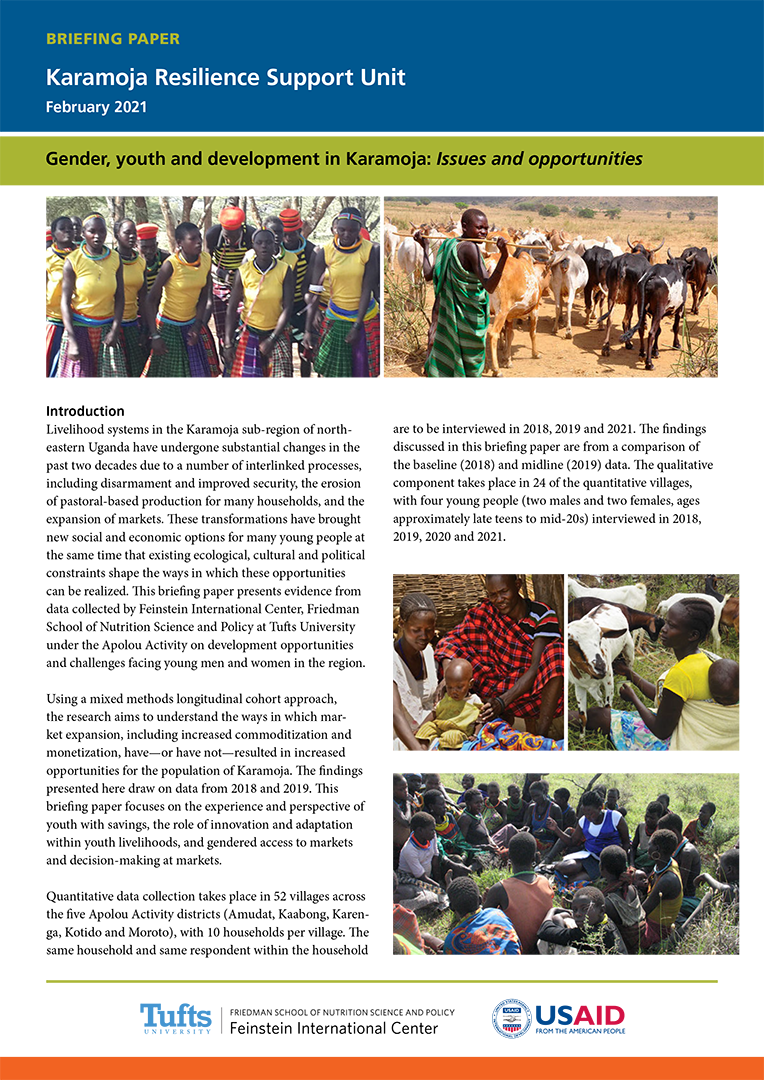Livelihood systems in the Karamoja sub-region of northeastern Uganda have undergone substantial changes in the past two decades due to a number of interlinked processes, including disarmament and improved security, the erosion of pastoral-based production for many households, and the expansion of markets.
These transformations have brought new social and economic options for many young people at the same time that existing ecological, cultural and political constraints shape the ways in which these opportunities can be realized.
This briefing paper presents evidence on development opportunities and challenges facing young men and women in the region.







